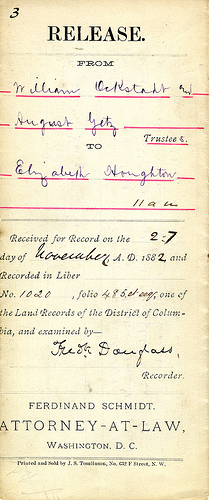In February I published a blog about a California court that would not take judicial notice of a document on a Federal Agency website. It dealt with the FDIC sale of Washington Mutual mortgage loan accounts to JP Morgan Chase. JPMorgan was conveyed all the assets, but none of the liabilities. That means that JPMorgan could foreclose, but the borrower could not make any claims against JP Morgan that they had against WaMu. In a recent court decision, a different court did take judicial notice of that same document on the website. The difference was due both the difference in the courts’ approaches, plus the borrowers’ attorneys’ arguments. A borrower or lender with questions about the different approaches should contact an experienced Sacramento real estate and business attorney, to be sure they do not get the same surprise.
 “Judicial notice” is the court’s recognition of the existence of a matter of law or fact without the necessity of formal proof. It can be described as a substitute for (formal) proof, a judicial shortcut, doing away with the formal necessity for evidence. Judicial notice is limited to matters which are indisputably true. A request for judicial notice can be defeated by showing the matter is reasonably subject to dispute. In California state court, Judicial Notice is limited by the evidence code, indicating matters which the court must take notice of, and matters which the court may take notice of. Federal Courts have a broader discretion as to what they may take judicial notice of.
“Judicial notice” is the court’s recognition of the existence of a matter of law or fact without the necessity of formal proof. It can be described as a substitute for (formal) proof, a judicial shortcut, doing away with the formal necessity for evidence. Judicial notice is limited to matters which are indisputably true. A request for judicial notice can be defeated by showing the matter is reasonably subject to dispute. In California state court, Judicial Notice is limited by the evidence code, indicating matters which the court must take notice of, and matters which the court may take notice of. Federal Courts have a broader discretion as to what they may take judicial notice of.
In Michael D. Scott v. JPMorgan Chase Bank (2013 WL 1098436), the borrower had a $975,000 construction loan. Washington Mutual acquired the loan, was taken over by the FDIC, and JPMorgan acquired the loan, and foreclosed. Scott filed suit, making several claims against JPMorgan. JP Morgan claimed that it had not acquired WaMu’s liabilities along with the assets, and sought judicial notice of the Purchase and Assumption Agreement, as posted on the FDIC web site.
 California Real Estate Lawyers Blog
California Real Estate Lawyers Blog


 In
In The NBC sports blog
The NBC sports blog  Partnership agreements generally have a
Partnership agreements generally have a  In
In 
 In
In  In
In The trial court ruled on summary judgment for the defendant jewelry store, finding that the plaintiff had established that the store owner had actual or constructive notice of a dangerous condition. The court of appeals disagreed. It noted that this was not a ordinary slip and fall- the answer turns on whether the dangerous condition was created by the negligence of an employee of the store. Such cases are governed by the doctrine of respondeat superior- the employer answers for the actions of employees, and is presumed to have notice of what the employees know. Here, the evidence shows that a reasonable inference can be drawn that the condition was created by employees of the defendant, and that the defendant is then held to know what the employee knows about the dangerous condition. If the employee was acting within the scope of their employment (doing their job) the owner cannot claim that he had no notice of the dangerous condition.
The trial court ruled on summary judgment for the defendant jewelry store, finding that the plaintiff had established that the store owner had actual or constructive notice of a dangerous condition. The court of appeals disagreed. It noted that this was not a ordinary slip and fall- the answer turns on whether the dangerous condition was created by the negligence of an employee of the store. Such cases are governed by the doctrine of respondeat superior- the employer answers for the actions of employees, and is presumed to have notice of what the employees know. Here, the evidence shows that a reasonable inference can be drawn that the condition was created by employees of the defendant, and that the defendant is then held to know what the employee knows about the dangerous condition. If the employee was acting within the scope of their employment (doing their job) the owner cannot claim that he had no notice of the dangerous condition.  In
In